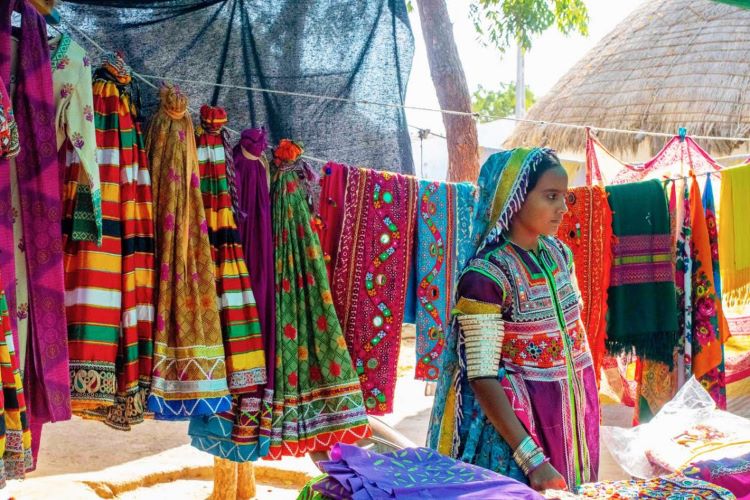
The ancient city of Dholavira, nestled in the heart of Kutch, stands as a testament to the shared heritage between the Kutchis and Sindhis, both deriving from the Indus Valley Civilization
Bakhtyaar Shahzad
Deep within the ancient sands of Kutch lies a treasure trove of history, where the echoes of the Indus Valley Civilization still reverberate. Amidst this storied land, a linguistic heritage of immense significance waits to be rediscovered—the melodic cadence of Kutchi. The ancient city of Dholavira, nestled in the heart of Kutch, stands as a testament to the shared heritage between the Kutchis and Sindhis, both deriving from the Indus Valley Civilization.
Kutchi, classified as a major dialect of Sindhi, enjoys a massive speech community that spans India, Pakistan, Africa, and beyond. Astonishingly, a 2001 report reveals that over 823,058 individuals claim Kutchi as their mother tongue (Government of India Ministry of Home Affairs, 2001). However, the Indian Ministry of Home Affairs has listed Kutchi as a subdivision of Sindhi, leading to protests from Kutchi nationalists advocating for its recognition as an independent language. Meanwhile, in Pakistan, Karachi stands as the heartland for most Kutchi speakers, with settlements in Hyderabad, Badin, Tharparkar, and Thatta, creating a vibrant diaspora.
Kutchi spoken in Sindh and the Banni region of Kutch remains intelligible to Sindhi
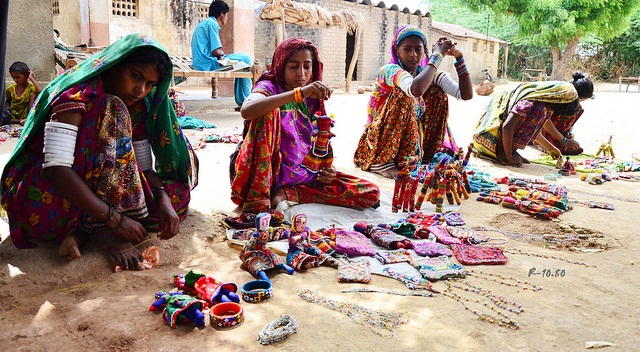 Giving our ears carefully to their speech, we discover a variation in Kutchi dialects. Kutchi spoken in Sindh and the Banni region of Kutch remains intelligible to Sindhi, while approaching Kathiawar and Gujarat reveals a growing influence of Gujarati. Kutchis settled in Gujarat and Mumbai have skillfully integrated an array of loan words from Gujarati into their speech. On the other hand, Kutchis in Africa have ingeniously developed a Swahili-Kutchi dialect, skillfully incorporating vocabulary from the Swahili language of Africa. Moreover, Kutchi exhibits a permeability to Urdu and Hindi. What confuses most speakers is whether Sindhi digits should be used in Kutchi e.g اُڻينھہ —‘Uñheen’ or 19 from Sindhi or ઉગનીસ— ‘Ognis’ or 19 from Gujarati!
Giving our ears carefully to their speech, we discover a variation in Kutchi dialects. Kutchi spoken in Sindh and the Banni region of Kutch remains intelligible to Sindhi, while approaching Kathiawar and Gujarat reveals a growing influence of Gujarati. Kutchis settled in Gujarat and Mumbai have skillfully integrated an array of loan words from Gujarati into their speech. On the other hand, Kutchis in Africa have ingeniously developed a Swahili-Kutchi dialect, skillfully incorporating vocabulary from the Swahili language of Africa. Moreover, Kutchi exhibits a permeability to Urdu and Hindi. What confuses most speakers is whether Sindhi digits should be used in Kutchi e.g اُڻينھہ —‘Uñheen’ or 19 from Sindhi or ઉગનીસ— ‘Ognis’ or 19 from Gujarati!
The language predominantly utilizes the Gujarati script for writing on a mass scale but in many parts of Pakistan, the Sindhi Perso-Arabic script is employed to write Kutchi language. Additionally, the written scripts of Kutchi encompass Khojki, used in Kutchi Ginans and other Ismaili Khojas literature, and the Khudabadi script. Despite claims from certain Gujarati scholars suggesting Kutchi as a dialect of Gujarati, the evidence fails to substantiate its linguistic origin in Gujarati. However the Sindhi implosives have been picked by those living in rural Sindh while in the urban areas, this phenomena is not common.
M.H. Panwhar contributed by an extensive research drawing on historical Sindh & Kutch relationship and it is this very historical relationship between Sindh and Kutch which serves as a gateway to understand the cultural exchange, where tangible elements of Sindhi culture transcend language. The Sindhi Ajrak, musical instruments, and literature hold a significant place in Kutchi culture. Notably, the Kutch region also houses several “Sammat” tribes, such as Sammas, Soomras, Panwhars, Junejas, Jadejas, and Kumbhars, who speak Kutchi. The enduring presence of Sindhi poetry and musical traditions, such as Shah jo Risalo and waee, in Kutchi folk illustrates their intertwined cultural heritage. It is remarkable to note that while Kutchis in Sindh did not migrate after the partition, a substantial number of Kutchis arrived in Karachi and other interior regions before the advent of British colonial rule.
The shared historical monarchies between the two regions have played a pivotal role in cultural exchange through intermarriages with Kutchi princesses and princes. The formation of the Kutch state in 1147 by Lakho Jadani, a prominent Samma King, marked the beginning of a dynamic history in which Kutch changed hands multiple times between Sindhi and Gujarati kings. The Rai dynasts of Sindh swiftly annexed Kutch after gaining control of Sindh (Panwhar, 1979). Additionally, during the reign of the last Sindhi ruler, Raja Chach, Kutch was inherited as part of his kingdom (Panwhar, 1979). The Kutchis provided security to Sindh during various historical periods, defending the region against southern invaders. Furthermore, Kutch served as a sanctuary for many Sindhi kings following their defeats in wars, including Chanesar, the brother of Dodo Soomro. Nevertheless, MH Panwhar suggests that the drying of the creek and the disappearance of pastures in the Rann of Kutch led to a decline in the relationship between Sindh and Kutch.
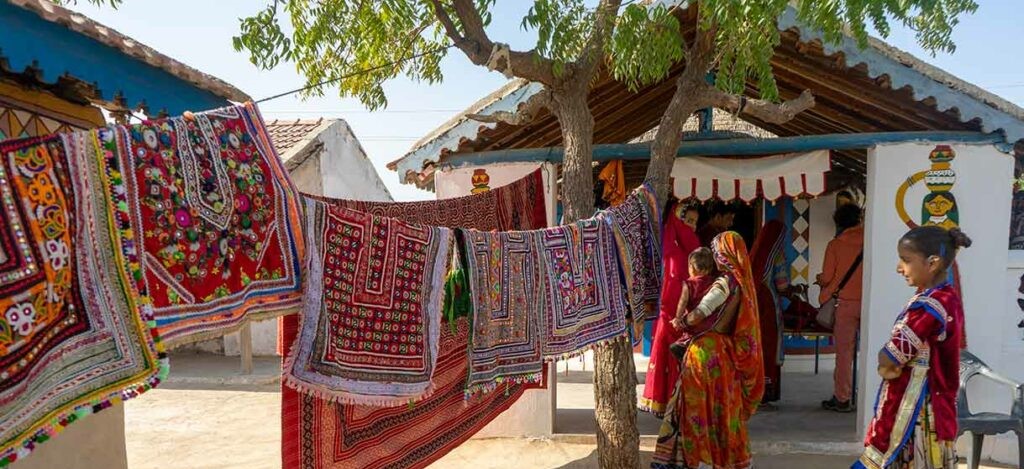 Approximately a million Kutchis proudly consider Sindh their home and have been officially recognized as indigenous Sindhi tribes in government’s 2011 census
Approximately a million Kutchis proudly consider Sindh their home and have been officially recognized as indigenous Sindhi tribes in government’s 2011 census
The British colonial period marked a significant turning point for Kutch, as it became an independent princely state within the Bombay presidency. Subsequently, Kutch was incorporated into Maha Gujarat, which encompassed Kutch, Kathiawar, Gujarat, and Maharashtra. However, on May 1st, 1960, Maharashtra separated from Gujarat, granting autonomy and independent statehood to both regions. To this day, Kutch and Kathiawar remain integral parts of the State of Gujarat. Following the partition, a large influx of Sindhi Hindu migrants settled in Gujarat, establishing Gandhidham city, where the Indian Institute of Sindhology was inaugurated in Adipur, Kutch. It is in this institute that Sindhi culture day is celebrated with great zeal. Despite attempts to rename Kutch as Indian Sindh, such movements were met with opposition and failed to gain traction.
In Pakistan, approximately a million Kutchis proudly consider Sindh their home and have been officially recognized as indigenous Sindhi tribes in the Sindh Government’s 2011 census. However, a growing trend towards language shift to Urdu is observed among certain Kutchi groups, especially the Kutchi Khojas, Kutchi Sammas, Memons, and Panwhars. While the Kutch Rabita Committee (KRC), an organization active in Karachi, focuses on resolving the political affairs of Kutchis, it has not been as proactive in preserving the cultural heritage of the community. Among the youth, there is a notable comfort with the language shift to Sindhi in rural areas and Urdu in urban areas. Although many individuals maintain a positive and neutral attitude towards their first language, interviews conducted in Karachi, Hyderabad, and Badin reveal a lack of enthusiasm for preserving the fast-disappearing dialect.
Given the historical and present state of Kutchi, authentic evidence unequivocally establishes its status as a dialect of Sindhi, a truth recognized worldwide by Kutchis and others. Surprisingly, Sindhi scholars have not made significant efforts to facilitate the inclusion of Kutchi in academia. If Kutchi is to survive in Pakistan, it must be recognized and given due prominence in Sindhi textbooks and research publications—an area that has been largely overlooked by Sindhi language researchers. Moreover, the language deserves a digital platform and television programs to enhance its recognition among the masses. The existing gaps beg the question: Who will take responsibility and leadership for Kutchi’s revitalization—the Kutchis themselves or the Sindhis? While both communities have made commendable efforts, the dialect continues to face challenges, particularly among the younger generation, which poses a threat to its survival in the coming years.
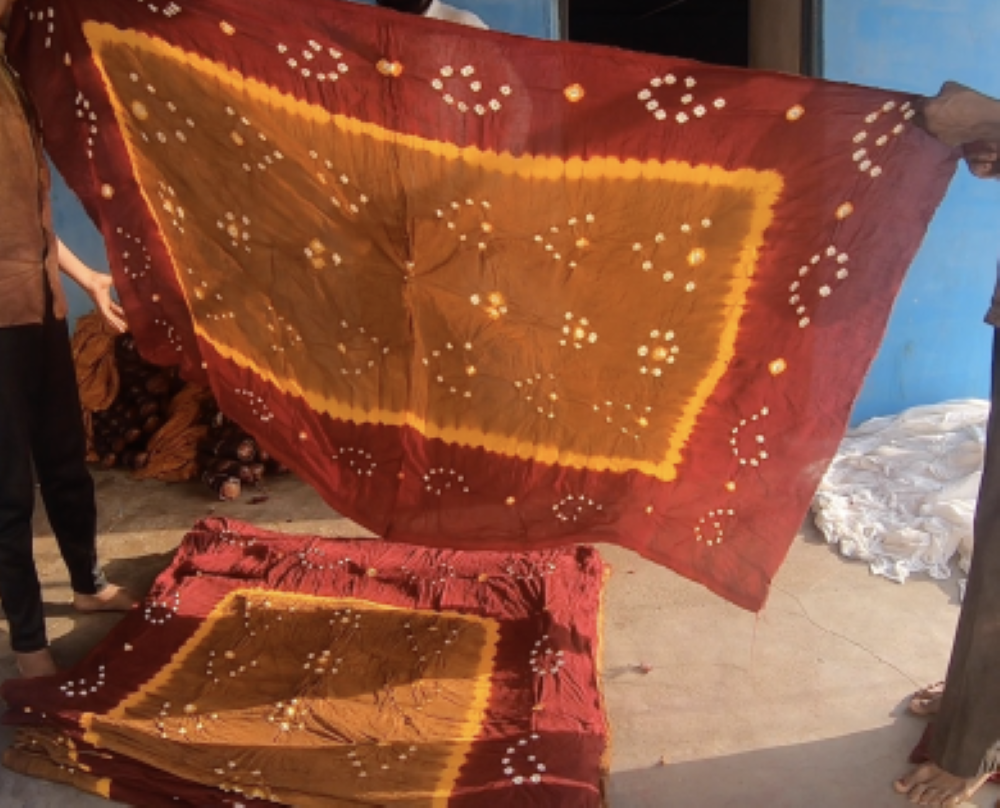 The revival of Kutchi as a distinct language is not only a matter of cultural preservation but also a testament to the rich history and heritage of the Kutchi and Sindhi communities
The revival of Kutchi as a distinct language is not only a matter of cultural preservation but also a testament to the rich history and heritage of the Kutchi and Sindhi communities
Amidst the complexities and challenges faced by the Kutchi community, a new ray of hope emerges in the realm of anthropology. Linguistic anthropology, with its cross-cultural and relativist approach, holds immense potential to suggest innovative ways to bring Kutchi to the spotlight. This scientific undertaking requires more than just governmental and community recognition of Kutchi’s origin; it demands a comprehensive framework tailored to both urban and rural areas, specifically addressing the challenges faced by different age groups in relation to Kutchi. Linguistic anthropologists, equipped with their expertise in language and practical scientific approaches, are indispensable in ensuring the grounded revival and survival of the fading Kutchi community. By engaging with linguistic anthropology, we can pave the way for a promising future for the language in the generations to come.
In conclusion, the revival of Kutchi as a distinct language is not only a matter of cultural preservation but also a testament to the rich history and heritage of the Kutchi and Sindhi communities. Recognizing the significance of Kutchi within the broader Sindhi linguistic landscape is paramount to its survival. By incorporating Kutchi into Sindhi textbooks and research publications, we can ensure that future generations have the opportunity to embrace and celebrate their linguistic identity. Furthermore, providing Kutchi with a digital platform and television programs will allow the language to reach a wider audience and gain recognition among the masses. This will not only foster a sense of pride among Kutchi speakers but also create opportunities for the language to flourish in various domains, such as literature, media, and the arts.
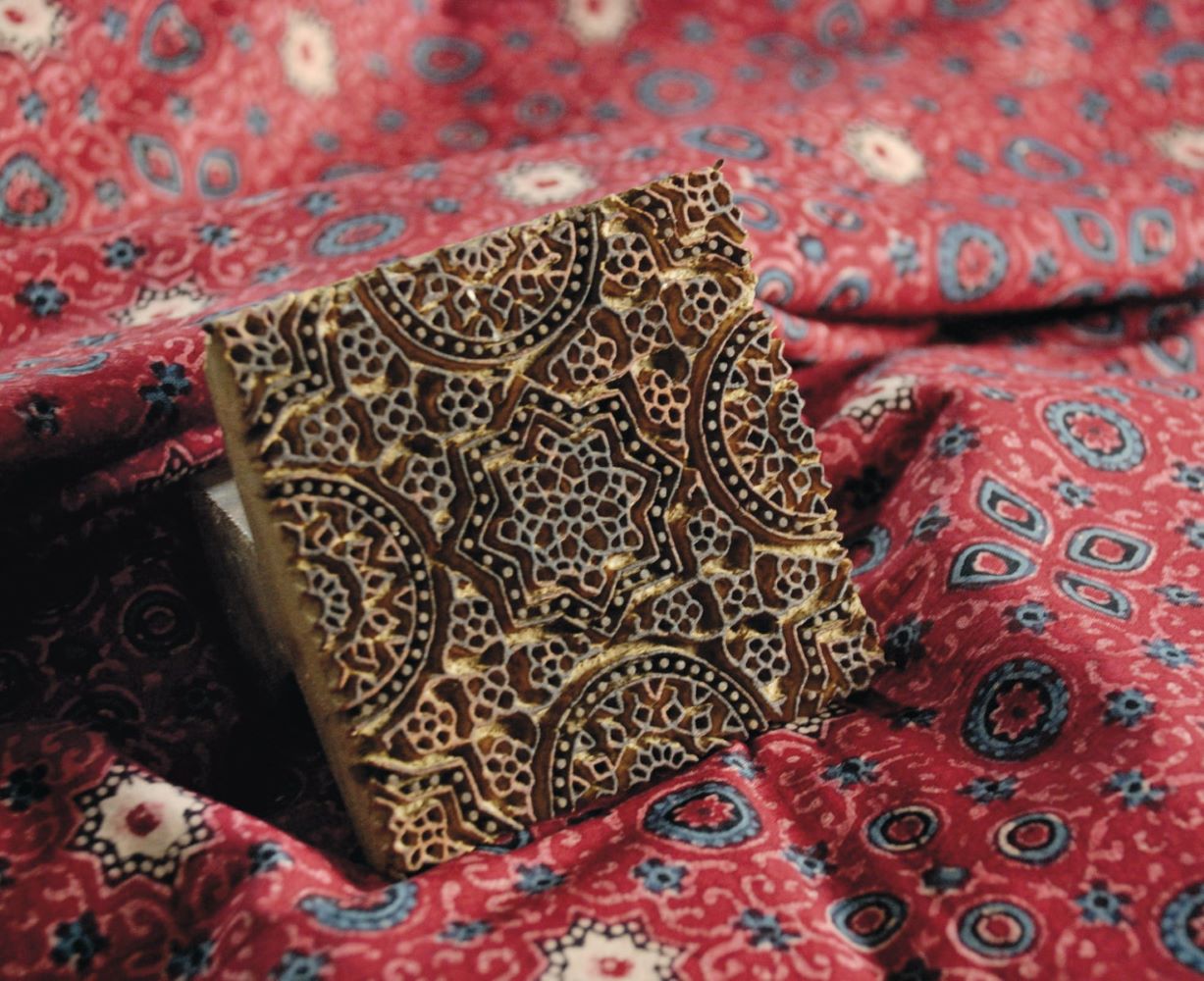 The responsibility for preserving and promoting Kutchi falls upon both the Kutchi and Sindhi communities but Anthropologists more than others. It is a shared endeavor that requires collaboration and mutual support. While the Kutchis have demonstrated their passion and commitment to their language and culture, the Sindhis must recognize the unique value and contribution of Kutchi and provide the necessary support and resources for its preservation.
The responsibility for preserving and promoting Kutchi falls upon both the Kutchi and Sindhi communities but Anthropologists more than others. It is a shared endeavor that requires collaboration and mutual support. While the Kutchis have demonstrated their passion and commitment to their language and culture, the Sindhis must recognize the unique value and contribution of Kutchi and provide the necessary support and resources for its preservation.
Ultimately, the survival of Kutchi lies in our collective hands. It is a language that carries the weight of history, culture, and identity
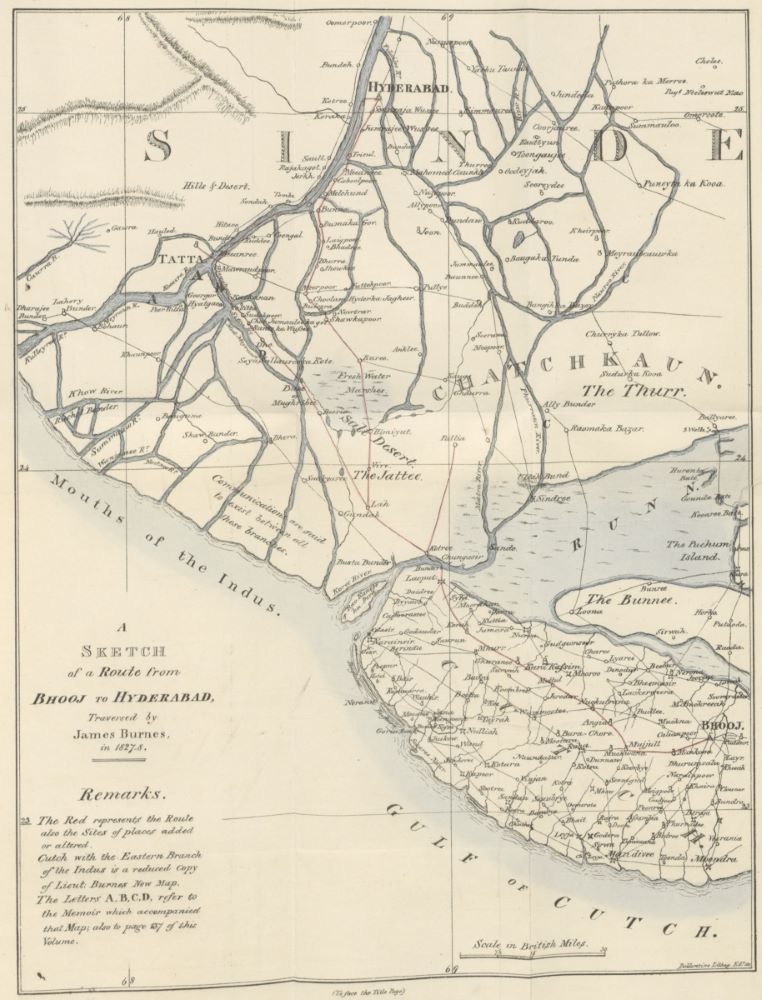 However, the challenges faced by Kutchi are not insurmountable. Linguistic anthropology offers a pathway forward by bringing its expertise in language revitalization and cultural preservation. By engaging linguistic anthropologists, we can develop a comprehensive and tailored framework that addresses the specific needs and challenges faced by the Kutchi community, both in urban and rural areas.
However, the challenges faced by Kutchi are not insurmountable. Linguistic anthropology offers a pathway forward by bringing its expertise in language revitalization and cultural preservation. By engaging linguistic anthropologists, we can develop a comprehensive and tailored framework that addresses the specific needs and challenges faced by the Kutchi community, both in urban and rural areas.
The scientific approach of linguistic anthropology will enable us to devise effective strategies and interventions to revive and sustain Kutchi. By leveraging the knowledge and expertise of linguistic anthropologists, we can tap into their understanding of language dynamics, social contexts, and community engagement to create a robust plan for the revitalization of Kutchi.
Ultimately, the survival of Kutchi lies in our collective hands. It is a language that carries the weight of history, culture, and identity. By recognizing its significance, investing in its promotion, and engaging with linguistic anthropology, we can ensure that Kutchi not only endures but thrives, enriching the lives of present and future generations. Let us embrace this opportunity to catch Kutchi once again, breathing new life into a language that is an integral part of our shared heritage.
_______________
 Bakhtyaar Shahzad Panwhar Linguistic Anthropologist. He is fluent in Sindhi, English, Urdu, Siraiki, Punjabi, Gujarati, Kutchi, Marathi, Bangla, Persian, Arabic, Hindi, Dhatki, Kohli Parkari (semi fluent in Spanish and Hebrew). He did BS Anthropology- Dec, 2022 from University of Sindh. His areas of interest are Anthropology, Sociolinguistics, Phonology, Historical and Comparative Linguistics, Culture. He can be accessed at Email: bakhtyaarshahzad@gmail.com
Bakhtyaar Shahzad Panwhar Linguistic Anthropologist. He is fluent in Sindhi, English, Urdu, Siraiki, Punjabi, Gujarati, Kutchi, Marathi, Bangla, Persian, Arabic, Hindi, Dhatki, Kohli Parkari (semi fluent in Spanish and Hebrew). He did BS Anthropology- Dec, 2022 from University of Sindh. His areas of interest are Anthropology, Sociolinguistics, Phonology, Historical and Comparative Linguistics, Culture. He can be accessed at Email: bakhtyaarshahzad@gmail.com